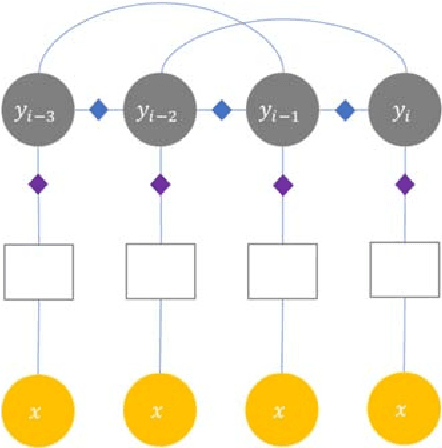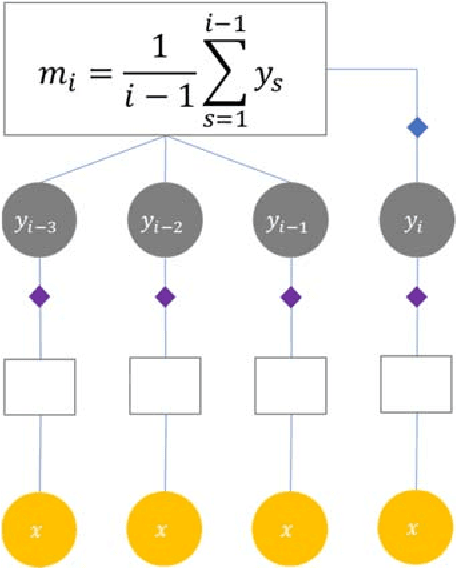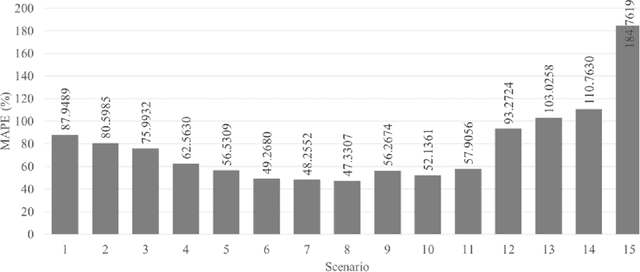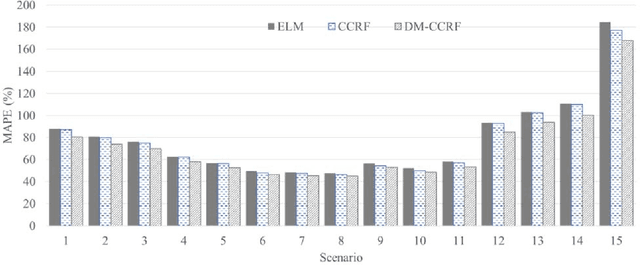Sumarsih Condroayu Purbarani
Distance-to-Mean Continuous Conditional Random Fields to Enhance Prediction Problem in Traffic Flow Data
Jul 11, 2017



Abstract:The increase of vehicle in highways may cause traffic congestion as well as in the normal roadways. Predicting the traffic flow in highways especially, is demanded to solve this congestion problem. Predictions on time-series multivariate data, such as in the traffic flow dataset, have been largely accomplished through various approaches. The approach with conventional prediction algorithms, such as with Support Vector Machine (SVM), is only capable of accommodating predictions that are independent in each time unit. Hence, the sequential relationships in this time series data is hardly explored. Continuous Conditional Random Field (CCRF) is one of Probabilistic Graphical Model (PGM) algorithms which can accommodate this problem. The neighboring aspects of sequential data such as in the time series data can be expressed by CCRF so that its predictions are more reliable. In this article, a novel approach called DM-CCRF is adopted by modifying the CCRF prediction algorithm to strengthen the probability of the predictions made by the baseline regressor. The result shows that DM-CCRF is superior in performance compared to CCRF. This is validated by the error decrease of the baseline up to 9% significance. This is twice the standard CCRF performance which can only decrease baseline error by 4.582% at most.
 Add to Chrome
Add to Chrome Add to Firefox
Add to Firefox Add to Edge
Add to Edge